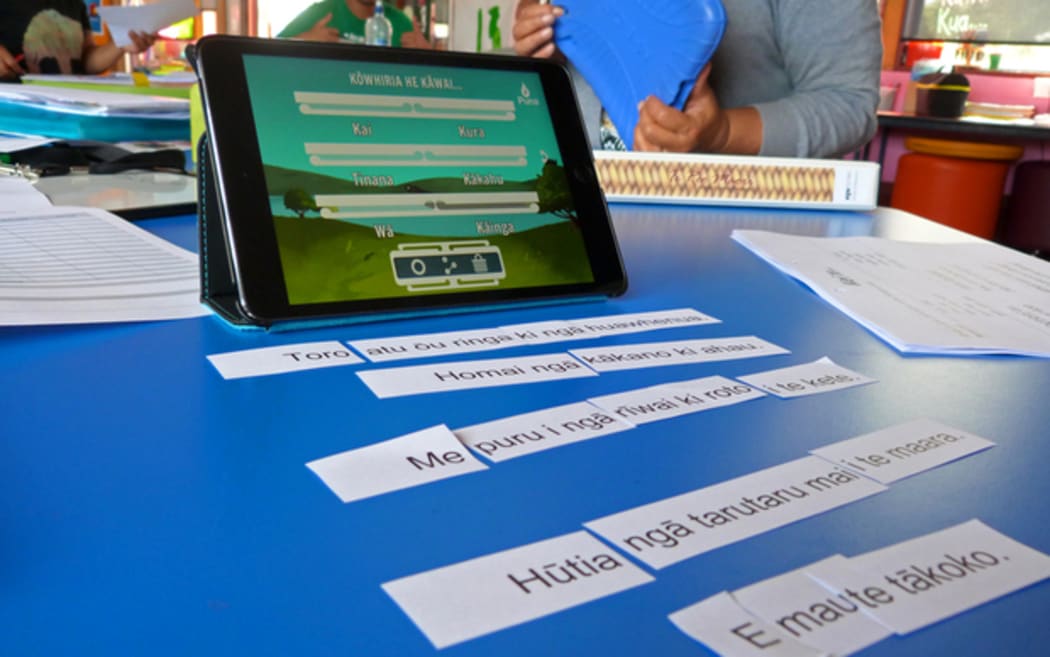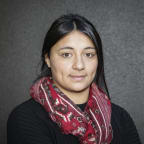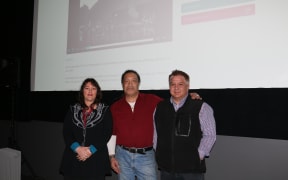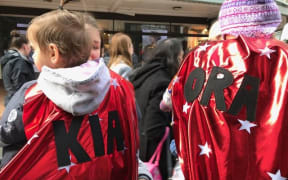Many Māori are embarrassed to speak Te Reo because they are scared of offending fluent speakers or because they do not appear Māori, according to a new short film project.

Many of the respondents in Māori language teacher Natalia Wirangitakina's film told her they were embarrassed to speak Te Reo Photo: RNZ / Tom Furley
In the film, made by Māori language teacher Natalia Wirangitakina, Māori of all ages and backgrounds were asked why they were embarrassed to speak Te Reo.
"People who are still learning Te Reo often feel intimidated speaking to fluent speakers, and people who aren't Māori feel like they will be judged if they speak Te Reo," she said.
Māori lawyer Georgia Woodward said her struggle speaking te reo Māori began as a 10-year-old, when she first felt ashamed to be Māori.
She said Māori were perceived as being poor, involved in crime, and less intelligent than Pākehā.
"I started to notice the stigma attached to being Māori ... that young I started to realise all of the negativity.
"From about then I started to think 'I don't want to tell people I'm Māori now' and I got away with it easily, being white."
Ms Woodward said that view changed when she was inspired by a Māori language teacher at high school.
"He taught me that I'm not just learning a language, I'm not just learning a culture, I'm learning my language and my culture, and now I'm really proud and I really love it."
Ms Woodward said her blue eyes, white skin and blonde hair gave people the impression she was not Māori, and this was another barrier preventing her feeling confident speaking Te Reo.
She studied Māori at the University of Waikato but felt isolated on her first day because she looked different from other Māori.
"Students in those classes were already fluent speakers, they were all darker skinned and when I walked in I got all of the looks like, 'Is she in the right class?'"
Summer Pritchard, 21, said she too has felt embarrassed to speak Te Reo because of how she looks.
"I get embarrassed because I'm white-skinned, blonde hair and blue eyes, so they don't think I can speak Māori."
Ms Pritchard said at university, where she studied Te Reo, her teacher assumed she was in the wrong place.
"She said to me, 'Have you got the wrong classroom?' and I said, 'No, I'm studying Māori.' And she said, 'Oh it's just that we often don't get people like you wanting to study Māori.'
"I thought, you know nothing about me, and throughout the lecture she kept singling me out, saying 'oh, I'll translate for you', assuming I didn't know any Māori."
Ms Pritchard said that was why a lot of people who did not appear Māori got nervous speaking the language.
Natalia Wirangitakina's short film was launched last week as part of Te Wiki o Te Reo Māori and now has over 40,000 likes on Facebook.
Ms Woodward said as soon as Māori Language Week ended, things tended to go back to normal, and Māori who felt embarrassed to speak Te Reo continued feeling that way.
"During of Te Wiki o Te Reo Māori everyone gets really confident, all of this stuff all on Facebook, all of these cool videos about keeping our reo alive and it's really encouraging.
"But then it disappears again."
Ms Wirangitakina said the film intended to show people that feeling embarrassed to speak Te Reo was common among Māori. She hoped people who watched it might be more supportive and compassionate towards speakers who were not fluent.






